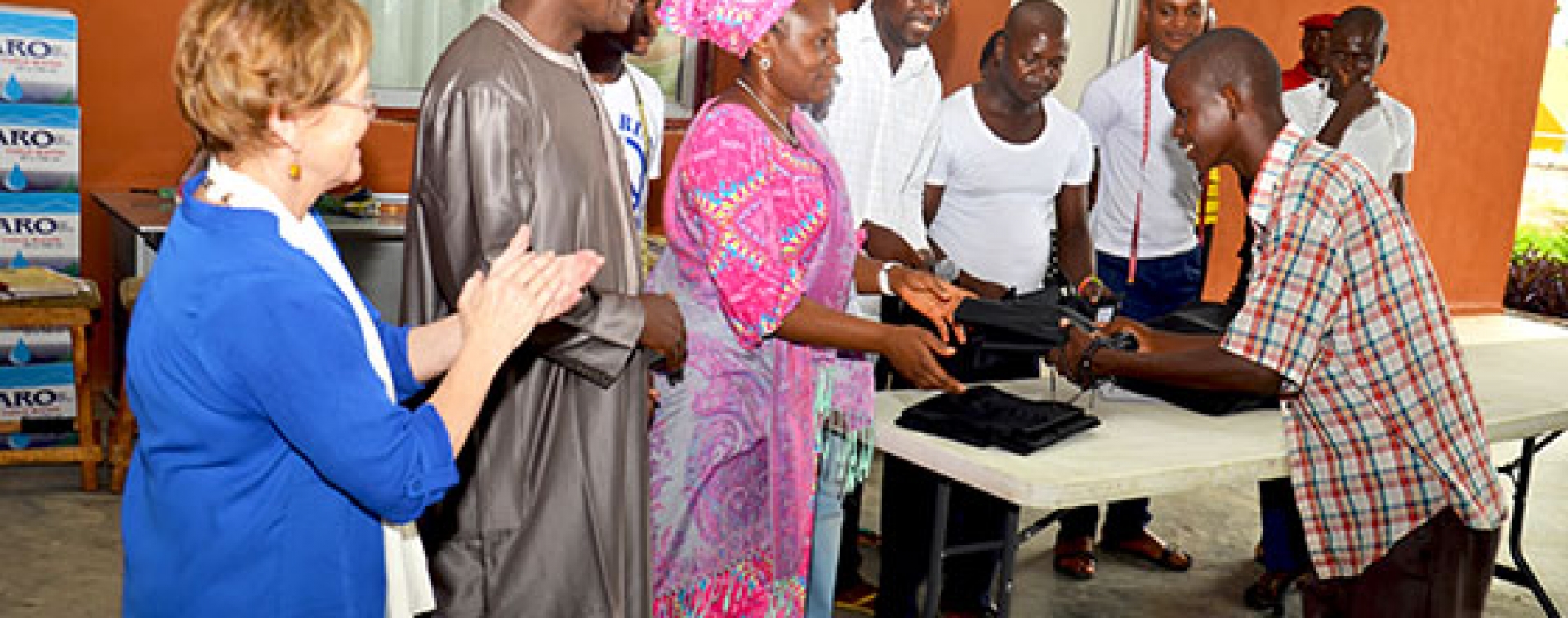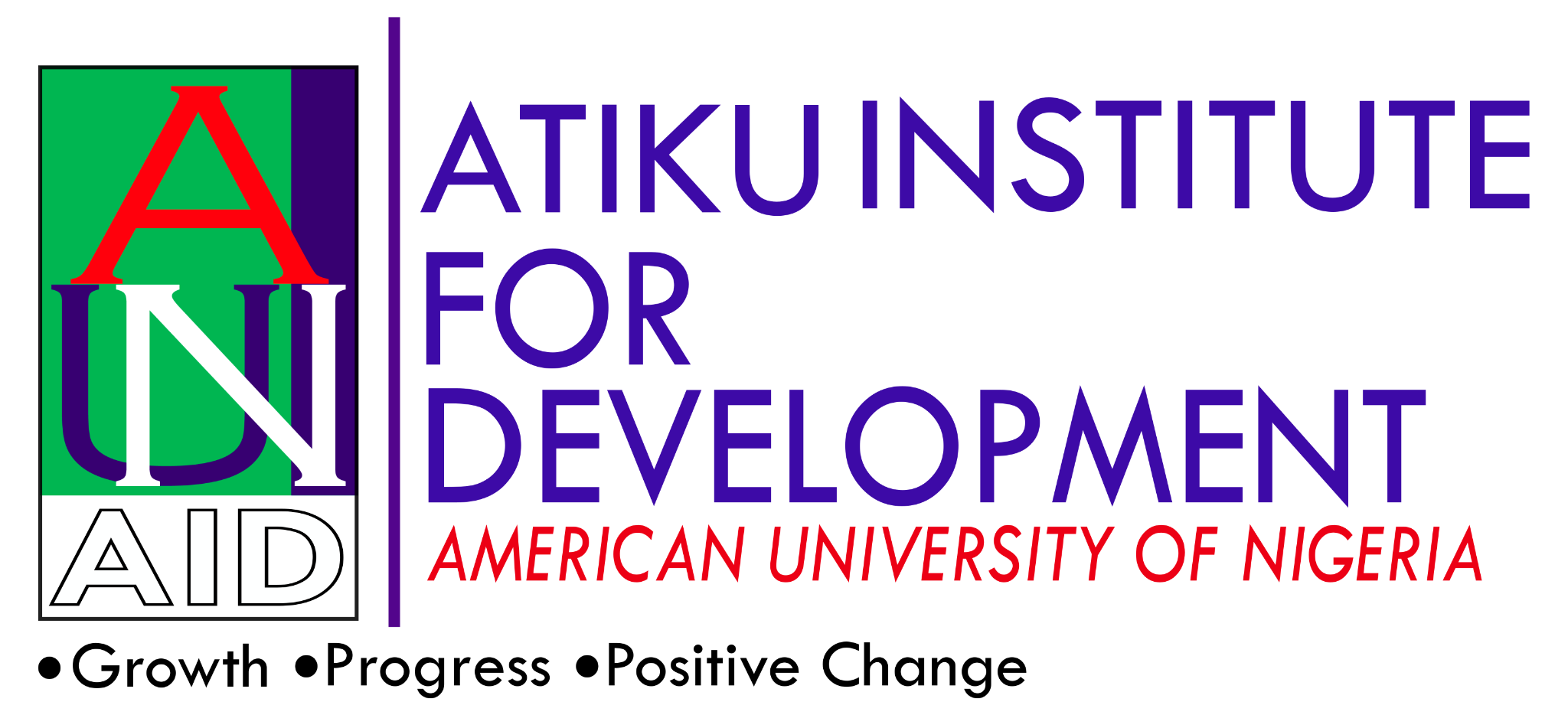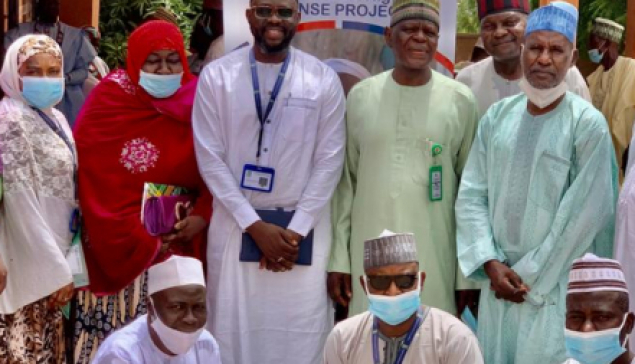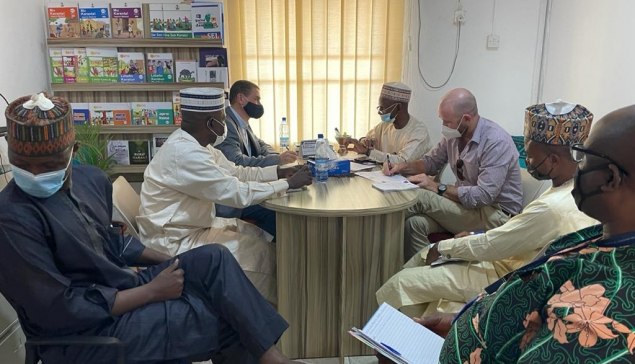
AUN’s Unique Celebration of Democracy Day
On Monday, May 30, in the festive spirit of Nigeria’s Democracy Day (May 29), AUN shared 50 pairs of home-made uniforms among the vulnerable children enrolled in the “Feed and Read for Boys” program.
The uniforms were sewn at AUN by in-house tailors.
The gesture was underscored AUN’s belief that quality education for all is the key to sustaining democracy in Africa’s most populous nation.
“What could be more important than celebrating democracy, the ability of people not just to vote, but to control their own lives and destinies and their desires?” President Ensign asked during the distribution of the trousers at AUN Security & Safety Operations reception area in the Akin Kekere-Ekun Administrative Building.
The President said that the occasion should serve as a basis for reflection on the need for Nigeria’s democracy to be sustained by educational development. Nigeria has more children out of school than any other country in the world, and the “Feed and Read” program is AUN’s small but significant contribution to changing the status quo.
“We are trying to remember the importance of education, to work on extending the work that we are doing with these young men, because I know we are looking into the faces of future leaders,” President Ensign said.
“Who knows, maybe there’s a senator, maybe there’s a governor, maybe the next President is one of these young boys.”
Recently, two US firms, Vicki Marsha Uniforms and FedEx, donated in kind to the “Feed & Read Program for Girls.” The University then took delivery of the school uniforms, worth $48,000 in wholesale value. The clothing had been freighted free of charge by FedEx, an American international courier firm. FedEx’s in-kind donation is valued at $11,000.
The new literacy program for girls was launched on February 11 with a modest financial donation by the Irish government, with AUN bearing much of the cost from its own meager resources. The Feed & Read program targets at-risk, out-of-school girls and orphans aged six to 17. Some of the beneficiaries were orphaned by the Boko Haram insurgency.
The literacy program provides basic literacy and numeracy skills to the girls and boys, with a feeding component that provides one meal per day, cooked by local vendors. Besides education, the program has a local economic impact as it is a source of livelihood for community women serving as volunteers and or facilitators in the program, as well as for the food vendors.
AUN literacy programs follow the same fundamental pedagogy and include a free meal for participants. AUN also runs a USAID-sponsored literacy and numeracy program Technology Enhanced Learning for All (TELA) which uses radio and tablet computers to reach using radio and tablets.
By Solomon Elusoji


